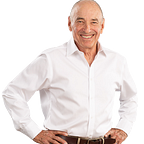Becoming Part of a Community
One summer evening, my girlfriend and I went to the New Jersey town of North Bergen to have dinner at an Italian restaurant. As we approached the restaurant, we drove through a public park where adults and children were either picnicking or playing a variety of games. “Look at what is happening here,” my girlfriend said. “There are so many things going on in the park. And people seem to be having such a good time.”
After we found a parking spot, I was having difficulty operating the parking meter and a man came over and helped us. We thanked him, and as we walked towards the restaurant, we noticed groups of people talking on the street corners. Everyone was speaking Spanish. Many of them smiled at us.
We found the restaurant and discovered that it had recently opened. The owner greeted us and said that this was a new branch of a New York City restaurant that his brother managed. My girlfriend smiled and said, “I’ve been in that restaurant on 44th Street so many times. It’s absolutely wonderful.”
The food was excellent and the owner was friendly. After dinner, we walked back to the car. The sun had set, and the streetlights were on. By now, the park had emptied but we noticed that on most street corners there was some kind of activity. We approached an ice cream and gelato shop, and went in to take a look. Outside, men were sitting around the tables laughing and talking. Down the block there was an open lot next to a library. Nearly one hundred people sat on metal folding chairs watching an outdoor movie. The atmosphere was alive and electric. Everywhere we looked, we saw a community in action.
A community has shared values and beliefs
The word “community” consists of two words: common and unity. It refers to group of people who together share a story or identity-forming narrative. Each of us has many communities in our lives. Some persist while others dissolve. Some communities are small, composed of only a few friends or relatives. Others are immense: think of political parties and religions. Each has a unique story and a shared set of values.
Growing up in Brooklyn, nearly everyone I knew was an avid Dodgers fan. We became a short-lived community whenever the team won an important game or a pennant, and strangers on the street would greet each other to celebrate the win. We knew all of the players, many of whom lived — and in the offseason worked — in the surrounding neighborhoods. The feeling of community depended on the presence of our team, and when it moved to Los Angeles in 1957, its thousands of faithful fans felt betrayed and abandoned.
My high school friends were also a community. We were early scuba divers and formed a community around this sport. We constructed our own wet suits and spear guns and spent summers in the ocean at beaches around Long Island.
During high school, I worked part-time as a runner on Wall Street, delivering a backpack filled with stock certificates to numerous firms. I loved being part of the community of runners and learning about the financial arena.
I am now part of many active communities. I cherish the community that is my family. My partner has made me part of the community of her friends. For the past two years, I have run a weekly slow burn, resistance-band training session on Zoom for five men. We are a tiny but robust community. A group of ping pong players in my building form yet another community to which I belong. I frequently bike in the morning down a path on the New Jersey side of the Hudson River. I occasionally meet other bikers. We sometimes talk together for as much as an hour. We feel part of a loose community, connected through our love of biking.
Where Everyone Knows Your Name
My girlfriend and I drove from New Jersey to Boston over the Labor Day weekend for a three-day vacation. We wandered around the city and on Saturday, we found ourselves in Beacon Hill. I could see a sign for a pub named the Bull and Finch Pub. “That’s the Cheers bar,” shouted my girlfriend. She grabbed my hand and pulled me toward it.
The pub was founded in 1969. It became the inspiration and the setting for the TV show Cheers, which aired every week from 1989 to 1993. The Bull and Finch was a comfortable place to have a beer and a chat with friends. The pub and the TV show housed such communities, one real and one created for television. And as the Cheers song reminded us each week, we are most comfortable in groups where “everybody knows your name.”
Being part of a community really does matter. It has changed my life many times and in many ways. And it can do the same for you. All you have to do is start looking. I promise, there are kindred spirits out there who are also looking for you to join their communities.
